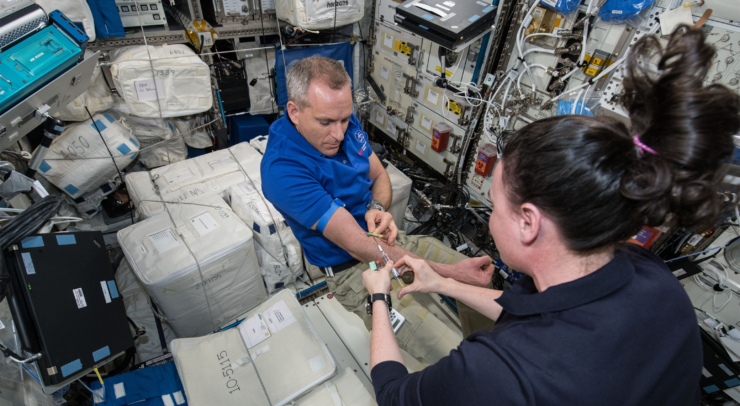Researchers received a combined total of over $1 million
Six University of Ottawa affiliated COVID-19 mental health projects have been selected to receive a combined total of over $1 million in funding grants from the Canadian Institutes of Health Research (CIHR).
The funding is part of the Government of Canada’s Knowledge Synthesis Grant: COVID-19 Rapid Research Funding Opportunity in Mental Health and Substance Use. In total, the federal government has invested $10.2 million into 55 different projects across the country.
The chosen projects focus on Mental Health and Substance Use (MHSU) in the workforce, stress of front-line hospital cleaners, delivering mental health support for front line workers serving homeless communities, using COVID-19 tests to detect and provide early mental health treatment, the mental health of Canadian medical residents during the pandemic and improving their physical health and wellness.
“As Canadians continue to adapt to changing times and the ‘new normal,’ mental health and substance use needs will not diminish,” said Dr. Samuel Weiss, the scientific director for the CIHR Institute of Neurosciences, Mental Health and Addiction in a news release. “This research will provide urgent evidence to service providers and policy makers in a time when many Canadians are experiencing increased stress and anxiety.”
“These projects will also address the impact of the pandemic on ongoing and increasing substance-related harms — including an opioid crisis that is already one of the most significant public health crises in recent Canadian history,” explained Weiss.
Recipient Ivy Lynn Bourgeault is implementing a one-year study assessing the capacity of the MHSU workforce across Canada by outlining a real-time picture of the ongoing pandemic needs and how to best respond to the anticipated longer-term service delivery.
“This is a project very dear to our heart and it [has] taken us a few kicks of the can to get it,” said Bourgeault, a U of O professor and holder of the University’s research chair in gender, diversity and the professions.
“We don’t know much about our mental health workforce in this country. The more this crisis goes on, the more these issues will be compounded,” said Bourgeault. “Mental health issues are being exasperated by the pandemic, over and above what was already there.”
Mary Bartram, a Carleton University professor and former director of mental health and substance use at the Mental Health Commission of Canada, is Bourgeault’s project partner.
“The health workforce often gets short [changed] from governments and researchers, mental health and substance use more so because it’s less about doctors and nurses and more about psychologists and social workers,” said Bartram.
“That lack of attention ignores that if you want to increase access to services, you have to look at who’s providing them.”
For recipient Wendy Gifford, an associate professor at the U of O in the faculty of health sciences, the focus on the experiences of frontline workers dealing with homeless populations is something that needs more attention. Gifford and her team’s research is taking a mental, physical, emotional, and spiritual approach to health and wellness directly delivering mental health support to frontline workers serving homeless and street-involved communities during the pandemic and beyond.
“I’m humbled and thrilled,” said Gifford’s project partner Danielle Rolfe, a U of O graduate, health researcher, and filmmaker. “For many [front-line workers] they have similar lived experiences as the homeless and are only paid minimum wage, and [have] a background where they don’t have a lot of money,” she said.
“They are dealing with chronic underfunding and staff [were] already burning out at extreme levels prior to the pandemic,” said Rolfe.
Rolfe adds that with the $197,000 they received in funding they will be able to continue supporting Ottawa Inner City Health and provide mental health retreats and the help of 20 new volunteers including Indigenous healers and a massage therapist.
“Front-line workers working to support on the street, often get forgotten about because they don’t work in hospital-based settings,” she said, wanting to better validate their transformative work.
“They’re truly saving people’s lives.”
A third project examining the impact of COVID-19 on the mental health of Canadian medical residents was awarded $101,540. This project is led by Dr. Jennifer L. Phillips, an assistant professor at the U of O in the department of psychiatry within the faculty of medicine.
“I feel very proud and thankful,” wrote Phillips in an email to the Fuclrum. “I am hopeful that through this work we can learn how to mitigate the effects of the pandemic on medical residents and influence change to lessen the impact of disruptions to medical training.
The project is the result of a partnership with Dr. Katerina Nikolitch of the Royal Ottawa Mental Health Centre. The project is co-developed by medical residents and educators, scientists, physicians, and physician health experts as well as advocates from the U of O faculties of medicine and health sciences. The U of O’s affiliated Royal’s Institute of Mental Health Research and the Canadian Medical Association are also playing big roles in the project.
“Under normal circumstances, medical residents experience burnout, depression, and suicidal ideation at higher rates than practicing physicians,” explained Phillips. “The COVID-19 pandemic is compounding these problems.”
“The mental health needs of medical trainees are largely underserved due to barriers in seeking care related to confidentiality, professional consequences and stigma.”
Another project to receive funding, is a project focusing on measuring the stress of front-line workers in Canadian hospitals. This project is a collaboration between Dr. Marie-Hélène Chomienne and Montfort Hospital.
Professor, vice-chair of research in the department of psychiatry and head of Ottawa’s Hatching Ideas Hub Dr. Simon Hatcher has been awarded funding for a study using COVID-19 tests to detect and provide early mental health treatment.
The final CIHR-funded project is data-driven research towards improving the physical health and wellness of health workers and studying the impact COVID-19 has had on their health. This project is led by Dr. Peter Tanuseputro, an assistant professor at the U of O in the department of family medicine.





